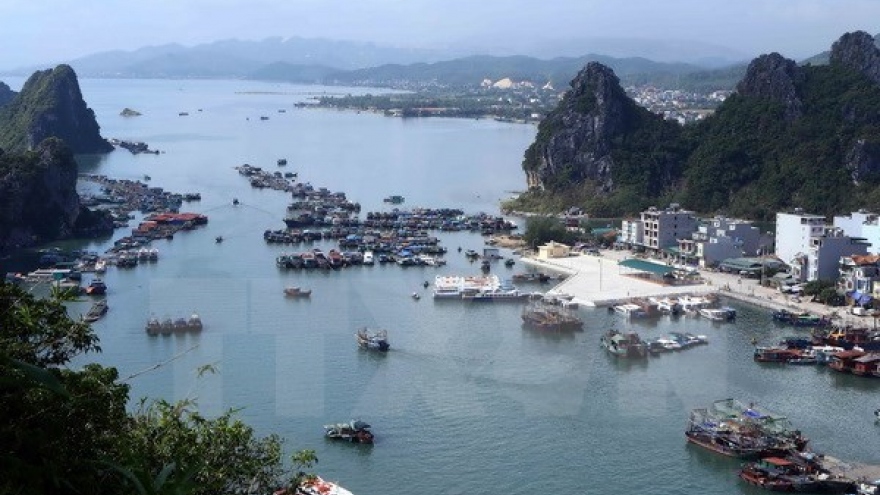Quang Ninh tourism reaches yearly target ahead of schedule
The northeastern border province of Quang Ninh attracted more than 8.6 million tourists in the first ten months of 2017, including nearly 3.4 million foreigners, year-on-year jumps of 18% and 21%, respectively.
 |
In 2017, Quang Ninh aims to serve 8.5 million visitors, including 3.5 million foreigners, and earn VND13 trillion (US$572 million) in revenue.
The number of visitors to the province’s Ha Long Bay increased 25% to reach 3.2 million by the end of October, including about 2.1 million international tourists (up 26% against the same period last year).
The rise was attributed to the creation of more attractive and better-quality products and services along with improved tourism infrastructure and transport, experts said.
Furthermore, several festivals were held such as Yen Tu festival, cherry and yellow apricot blossom festival, Ha Long-Quang Ninh tourism week, and Ha Long art programme.
The diversification of tourism promotion activities drew much attention from domestic and foreign visitors.
Themed “Ha Long: Heritage, wonder and friendly destination", the National Tourism Year 2018 will include 100 events hosted by the Ministry of Culture, Sports and Tourism along with some cities and provinces nationwide.
A number of activities will be held in Quang Ninh, including the opening and closing ceremonies of the National Year, a cuisine festival, a paragliding competition, a photo contest, and a ceremony to present a certificate recognising Cua Ong temple as a special national relic site, among others.
Under the Overall Plan for Tourism Development in Quang Ninh, Quang Ninh strives to become an international tourism centre and a leading tourism destination in Vietnam with modern infrastructure and diverse, high quality and competitive tourism products.
By 2020, Quang Ninh aims to welcome 15-16 million tourists, including seven million foreigners, and rake in VND30-40 trillion (US$1.3-1.7 billion) in revenue. The tourism sector is expected to contribute 14-15% to the gross regional domestic product (GRDP).
In 2016, Quang Ninh welcomed 8.3 million tourist arrivals, a year-on-year increase of seven percent, and earned more than VND13 trillion (US$571 million) in revenue, up 23%, according to the Quang Ninh Department of Tourism.
The world natural heritage site of Ha Long Bay alone welcomed 6.3 million tourists and grossed VND7.7 trillion (over US$338 million) in revenue, respective increases of 14% and 65% from the previous year. About 2.7 million of the visitors were foreigners, year-on-year growth of 16%.
With a range of stunning landscapes, clear turquoise sea and spectacular limestone pillars together with numerous tourism investment projects, Quang Ninh boasts huge potential to develop tourism.
The province has a coastline of more than 250 kilometres and over 2,000 islets, two-thirds of the total number in Vietnam. The spectacular stretch of coast connects the UNESCO-recognised World Heritage Site of Ha Long Bay with majestic natural scenery, Bai Tu Long Bay, Van Don and Co To islands and Tra Co beach with Cat Ba National Park in the northern port city of Hai Phong.
Ha Long Bay, Cat Ba island and Do Son beach (Hai Phong city) are slated to be developed into national tourism sites.
Along with the renowned Ha Long Bay, Quan Lan, Minh Chau, Ngoc Vung, Dai beaches in Van Don island district and Tra Co and Vinh Thuc in Mong Cai city have grown in stature among domestic and international tourists thanks to their breathtaking sea and coral reef.


